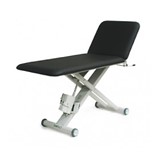The number of people testing for HIV at key Brisbane GP clinics has increased by an average of 36 per cent in 2014. The number of rapid HIV tests done across Queensland also rose substantially in 2014 with 1,992 tests performed.
HIV Foundation Queensland Chair, Dr Darren Russell, said the increase in testing was good news and provided evidence that the right group of people is being tested.
"Working toward an end to HIV requires us to diagnose virtually all cases of people living with HIV. To do this, increasing testing is crucial," Dr Russell said.
"With the largest at risk group for new infections being men who have sex with men, seeing an increase like this in testing for HIV at key high caseload gay friendly GP clinics is particularly important. Whilst the average increase was 36 per cent some of the clinics showed an increase in testing of over 40 per cent."
Dr Russell also noted the increase did not take into account testing done via rapid HIV tests that commenced in Queensland in June 2013. A total of 1,992 rapid tests were done in 2014 using kits supplied by the Department of Health.
"Rapid HIV testing has really taken off in 2014, both in clinical and community based settings. When you include the rapid test numbers done last year, the overall increase in men tested for HIV would be substantially higher than 36 per cent."
"We are currently working with the Department to provide data in relation to HIV testing done at all Queensland Health facilities from 2013 to 2014. The Foundation expects that when this data is released it will further inform the full increase in testing across the state."
Dr Russell cautioned that increased testing can also lead to a rise in HIV notifications. Although the final data for new transmissions in 2014 was not yet available, there has been an increase in 2014 following a decrease in 2013.
"Based on what we now know, it is likely that the availability of rapid testing services and the increased numbers of men getting tested will have contributed to the higher rates of HIV notification being recorded in Queensland in 2014. Similar increases have been seen in other Australian states in recent years and have also been attributed to increased testing rates."
"Early detection means early treatment, which we know improves the outcomes for individuals and is key to our aim of virtually eliminating the transmission of HIV by 2020." Dr Russell said. HIV Foundation Queensland CEO Tony Majer said that increased testing and access to testing would remain key focus areas for 2015.
"The Foundation has made a significant investment into targeted messages promoting the importance of getting tested and knowing your status. It is great to see so many Queensland men hearing that message and getting tested," Majer said.
"Our work in relation to making rapid testing more available through community based sites and outreach work is really starting to see results. Taking testing to the community rather than relying on traditional clinical models is a direction we will continue to take this year."
Queensland's ENDHIV campaign has been running since July 2013 and is now managed by the HIV Foundation Queensland.




